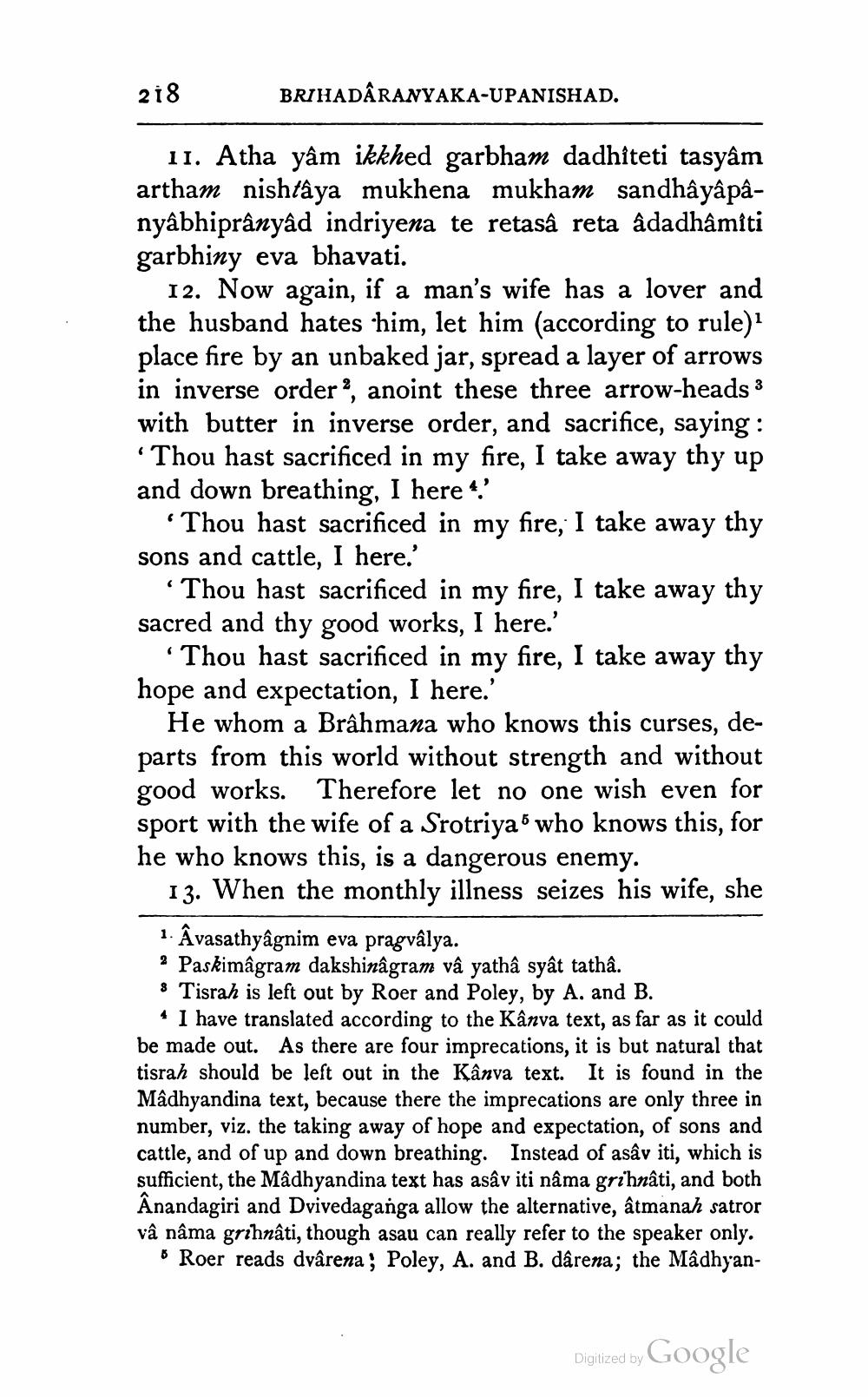________________
218
BRIHADARANYAKA-UPANISHAD.
11. Atha yâm ikkhed garbham dadhiteti tasyâm artham nishtâya mukhena mukham sandhâyâpânyâbhiprânyâd indriyena te retasâ reta adadhâmiti garbhiny eva bhavati.
12. Now again, if a man's wife has a lover and the husband hates him, let him (according to rule) place fire by an unbaked jar, spread a layer of arrows in inverse order ?, anoint these three arrow-heads 3 with butter in inverse order, and sacrifice, saying : 'Thou hast sacrificed in my fire, I take away thy up and down breathing, I here 4'
•Thou hast sacrificed in my fire, I take away thy sons and cattle, I here.
'Thou hast sacrificed in my fire, I take away thy sacred and thy good works, I here.'
Thou hast sacrificed in my fire, I take away thy hope and expectation, I here.'
He whom a Brâhmana who knows this curses, departs from this world without strength and without good works. Therefore let no one wish even for sport with the wife of a Srotriya who knows this, for he who knows this, is a dangerous enemy.
13. When the monthly illness seizes his wife, she 1. Âvasathyâgnim eva pragvâlya. 2 Paskimâgram dakshinâgram vâ yathâ syât tatha. 8 Tisrah is left out by Roer and Poley, by A. and B.
4 I have translated according to the Kânva text, as far as it could be made out. As there are four imprecations, it is but natural that tisrah should be left out in the Kânva text. It is found in the Mâdhyandina text, because there the imprecations are only three in number, viz. the taking away of hope and expectation, of sons and cattle, and of up and down breathing. Instead of asâv iti, which is sufficient, the Mâdhyandina text has asâv iti nâma grihnâti, and both Ânandagiri and Dvivedaganga allow the alternative, âtmanah satror và nâma grihnâti, though asau can really refer to the speaker only.
Roer reads dvârena ; Poley, A. and B. dârena; the Mâdhyan
Digitized by Google




